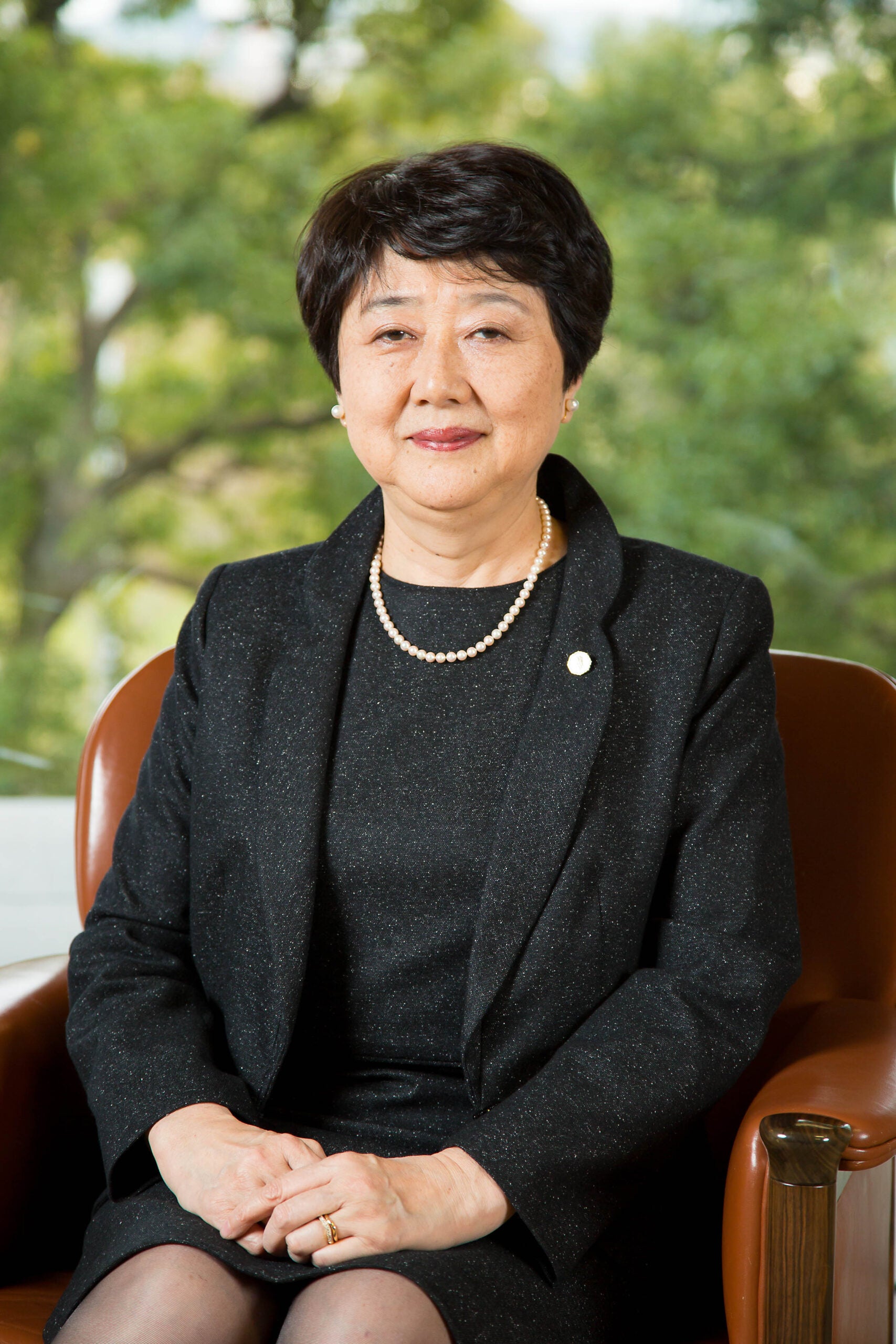As soon as Yuko Miyazaki LL.M. ’84 joined the Supreme Court of Japan in January 2018, she made history and international headlines. The sixth female justice on Japan’s high court, Miyazaki announced she’d be the first to issue opinions under her maiden name—an option not available to female judges in Japan until 2017.
Miyazaki’s shrug is almost audible across a phone connection from Japan. “It was natural for everyone,” says the 67-year-old justice. “I am known as Lawyer Miyazaki.” She’s worked under her birth name since the 1970s, influenced by the unanimous advice of professionals on a panel she attended for female university students.
More than three decades after her year in Cambridge, Miyazaki has become one of two HLS grads on Japan’s 15-member Supreme Court. Mamoru Miura LL.M. ’85 became a justice a month after her. In conversation, Miyazaki projects a friendly confidence and frankness. Those traits and her sense of humor have led HLS Professor Mark Ramseyer ’82, who has worked on cases with Miyazaki, to compare her to U.S. Supreme Court Justice Elena Kagan ’86.
In the United States, many Supreme Court justices tend to have spent much of their careers on a legal fast track. Not so for Miyazaki, who says her early ambitions didn’t include Japan’s high court. “Not at all,” she says. “It was hard to imagine.”
It was hard for Japanese women to launch professional careers in the 1970s, she says. Their best move was to get an advanced degree. Miyazaki, whose father was a judge, chose the law. “Probably by talking with my father, I came to like the way a lawyer thinks,” she recalls. “We have to be bound by the law, legal principles and rules, fairness and justice. And you also have to be logical.”
Miyazaki graduated from the University of Tokyo faculty of law in 1976. Nagashima & Ohno, one of Japan’s most prestigious law firms, hired her as its first full-time female lawyer in 1979. She doesn’t think she faced any particular obstacles as a female lawyer other than an occasional frown from a client when she walked into a room. “Maybe I was lucky, very lucky,” she says; female friends in the law have confided in her about “difficulties, uncomfortable experiences.”
Miyazaki took an early interest in corporate law and international law, but she switched to tax on the advice of her mentor, firm co-founder Yasuharu Nagashima LL.M. ’62. Tax law was an obscure pursuit in Japan then. But Nagashima, who had friends in the United States, knew of its importance in American law and predicted it would be a growth industry for the firm.
It’s also thanks to Nagashima that Miyazaki spent a year at Harvard. He’d taught a class on Japanese law at HLS and led many lawyers at his firm to consider an HLS education.
Miyazaki’s most vivid memory of her year at HLS is her winter-term course in international tax law. She remembers getting the reading materials for the course in December: “literally, a one-meter-high [stack]” for the three weeks. “It was very, very tight and required a lot of work,” she recalls. H. David Rosenbloom ’66, the visiting professor who taught the course, became a mentor to Miyazaki in the international tax arena. The justice says she’s benefited from HLS’s extensive, multinational network in Japan. “If you know someone from Harvard Law School, you can call, ask something, discuss something.”
As tax law became an important field in Japan, Miyazaki rose to its heights. After she won a major case for IBM Japan against Japan’s National Tax Agency in 2014, the Nikkei Asian Review praised her “in-depth knowledge of tax law and stunning courtroom prowess.”
Yet Miyazaki describes her litigation strategy in plain-spoken terms. “If you think logically, and if you think, What exactly is the spirit of the law? and if you combine those two together, then it’s a good argument in the tax law area,” she says. “I tried to collect facts, and tried to collect evidence, and think through logically, and tried to think, What’s the just way to deal with this issue?”
